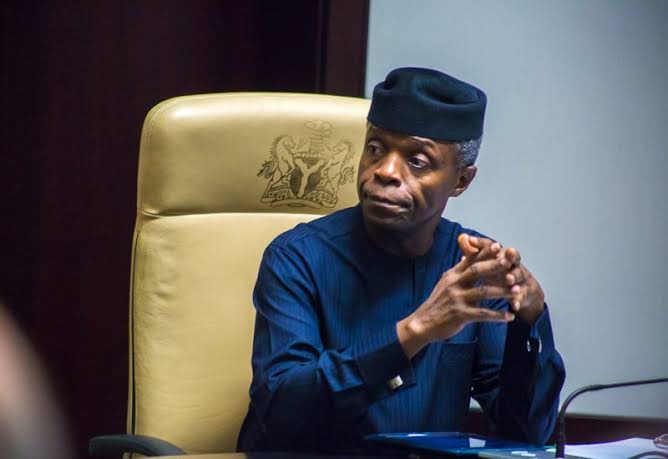Vice President Yemi Osinbajo, Minister of State, Petroleum, Mr. Timipre Sylva, and the Secretary-General of the Organisation of Petroleum Exporting Countries (OPEC), Dr. Sanusi Barkindo, are expected to lead discussions at the Nigerian Association of Energy Economics (NAEE), the conference, which opens in Abuja tomorrow.
National President of the organisation, Prof. Yinka Omorogbe, who spoke during a pre-conference press briefing in Abuja yesterday, noted that the theme of the four-day programme: “Strategic Responses of Energy Sector to COVID-19 Impacts on African Economies”, was carefully selected due to the huge effect of the virus on the global poor, especially in Africa.
Coupled with the issue of zero carbon by 2050 that is being suggested by the International Energy Agency (IEA), she noted that it was time for Africa to grow its energies with innovative solutions.
Omorogbe posited that the search for cleaner fuels did not mean carbon fuels would be jettisoned in the coming years, explaining that the country needed informed and strategic discussions in this area.
She pointed out that the conference would consider what the strategic responses of the energy sector should be to the impacts of COVID-19 on African countries, disclosing that aside Osinbajo, Sylva, and Barkindo, the Minister of Finance, Dr. Zainab Ahmed, would also attend as a keynote speaker.
While describing issues around net-zero as very fascinating, Omorogbe maintained that the much-talked-about phenomenon would not be the death of the oil industry.
She stressed that the oil industry would continue to play a very vital role in the energy mix, arguing that countries and companies that deploy technology and innovation will continue to lead in the global energy industry.
“The oil industry is not going anywhere. It’s simply going to evolve and that is why you see that the big companies are not making noise, but they are evolving and you see that there’s so much innovation that’s happening now. It’s just a time for innovation and not business as usual.
“This is not the time for us to be shouting oil spillage somewhere or to be allowing archaic practices that are not allowed in any other area of the world. There are lots of things that we need to do,” she argued.
She explained that Nigeria must prepare to meet the challenges of the future, lamenting that there’s currently a crisis in the education system with challenges surrounding science education.
She explained that there were opportunities in the oil and gas industry that should be taken advantage of by the country, urging industry players not to be left behind.
On the Petroleum Industry Bill (PIB), she argued against starting the entire process afresh, advising that though not a perfect document, it should be assented to for now and improved upon later.
“If you take it out and rewrite, then we are back to square one and it will take another few years. But my position has been that we can’t get a perfect document, It will always be a controversial document,” she added.
She explained that Nigerians must put emotions aside and look into what constitutes three per cent of host oil community funds and the 30 per cent accruing for exploration of the frontier basins, arguing that the arguments must be based on facts.
In his remarks, a founding member of the association and Energy Economist at the University of Ibadan, Prof. Adeola Adenikinju, noted that the event would bring together various segments of the society, including the academia, private sector, and government.
He added that energy remained the lifeblood of every modern economy, coupled with the fact that oil and gas remained very critical to Nigeria’s economic survival, more reason the conference is timely.

